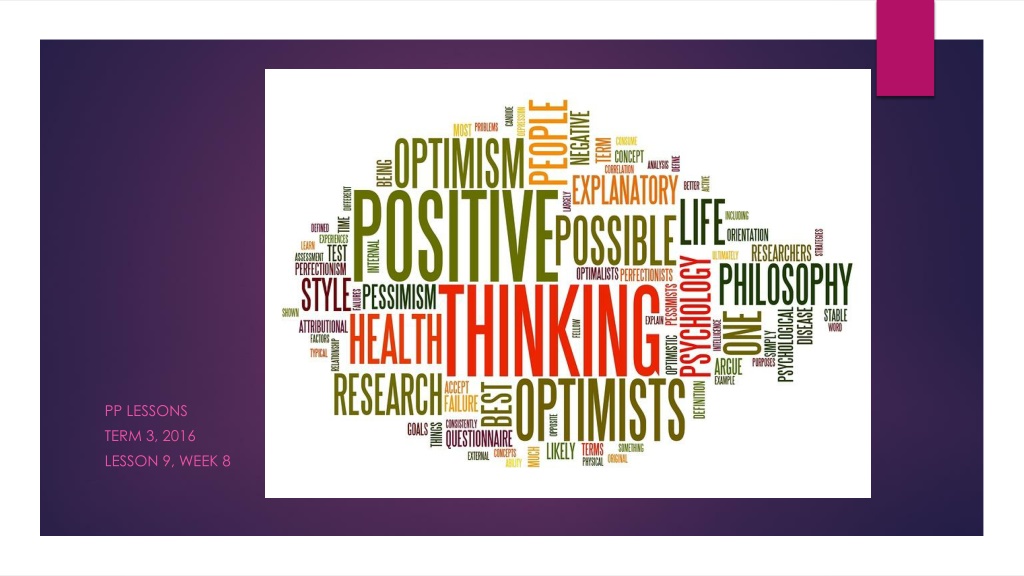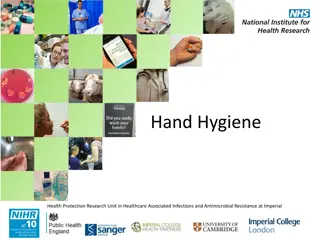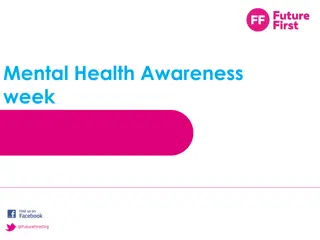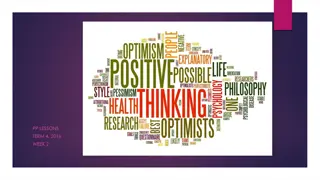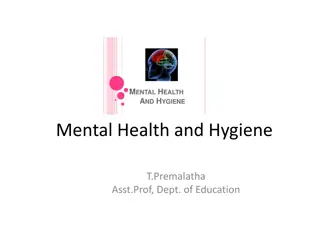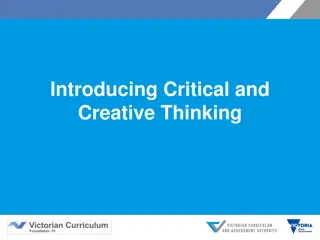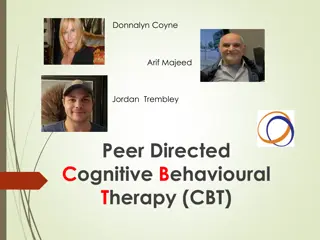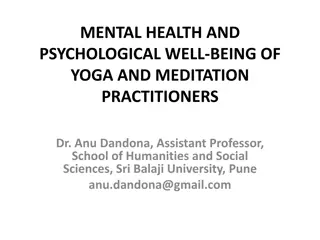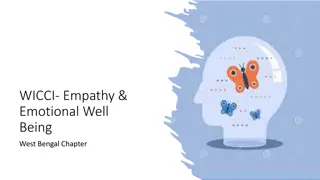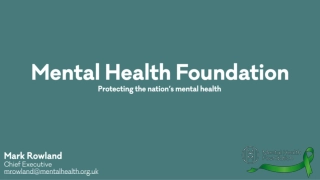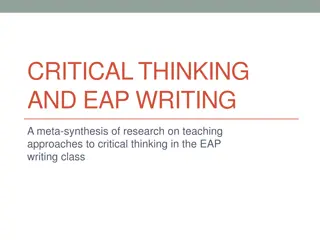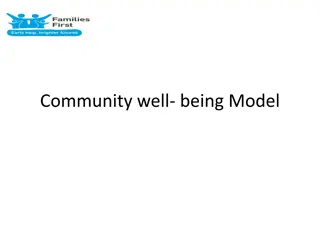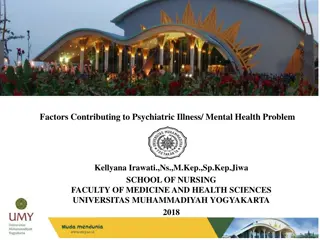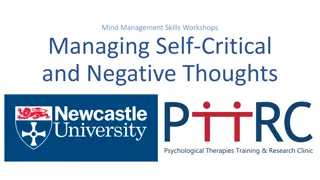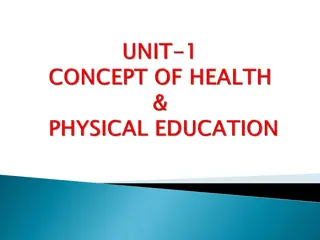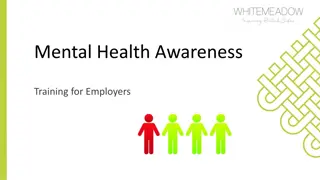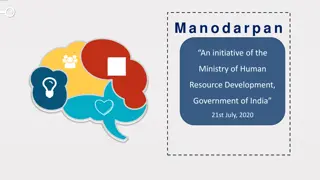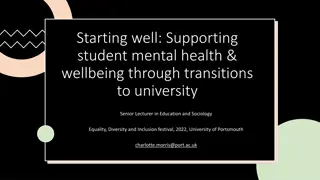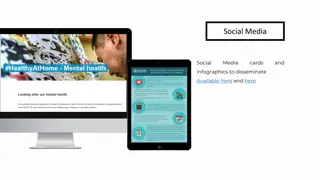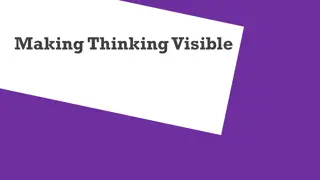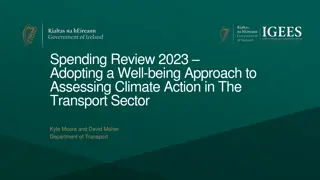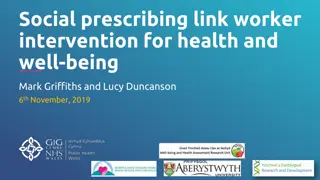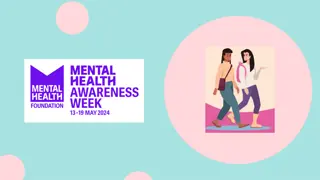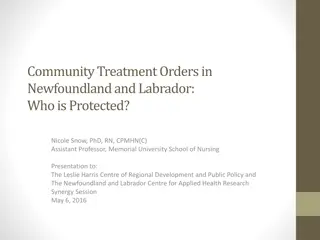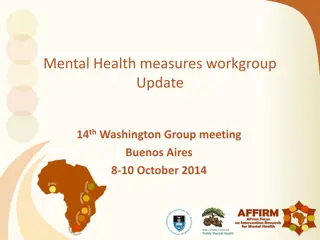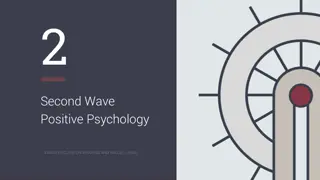Understanding the Impact of Unhelpful Thinking on Mental Well-being
Last lesson, we explored optimistic thinking and its positive effects. This week, we delve into unhelpful thinking patterns that can lead to increased distress and unhappiness. By recognizing different types of unhelpful thoughts, such as permanent vs. temporary, everything vs. specific, and because of me vs. because of others, we can learn to cultivate a more balanced and resilient mindset. Optimistic thinking plays a key role in helping us navigate challenging situations and maintaining a positive outlook even when faced with adversity.
Download Presentation

Please find below an Image/Link to download the presentation.
The content on the website is provided AS IS for your information and personal use only. It may not be sold, licensed, or shared on other websites without obtaining consent from the author. Download presentation by click this link. If you encounter any issues during the download, it is possible that the publisher has removed the file from their server.
E N D
Presentation Transcript
PP LESSONS TERM 3, 2016 LESSON 9, WEEK 8
Do you remember? Last lesson we looked at Optimistic thinking (helpful thoughts)and looked at ways to be positive.
This Week WALT: understand that unhelpful thinking makes you feel more upset WILF: recognising different types of unhelpful thoughts
Unhelpful thinking makes you feel more upset The way you think about what happens to you leads to your feelings about it. If you use helpful thinking (Optimistic thoughts) you will have a happier feelings and feel better. Helpful thinking means not jumping to conclusions, checking your facts and not believing the worst pictures.
Ways we think about things Permanent or temporary? Permanent it will always be like this Temporary it s this way now, but it can get better Examples: Mary doesn t get invited to a friend s party Thoughts: I will always be left out and never get to go to a party or I didn t get invited to Mary s party, but I have lots of other friends so there will be lots of parties this year. Mary might invite me next time.
Ways we think about things Everything or specific ? Everything (global) this will affect everything Specific this is only about this thing Examples: Student gets into trouble for being rude to a teacher Thoughts: All the teachers will hate me now or Mrs Black will be cross with me for a while, but I know that my other teachers really like me.
Ways we think about things Because of me or because of others? Because of me it is all my fault, I am the cause of the problem Because of others it s not all because of my actions Examples: Sam doesn t want to play with me Thoughts: I am no fun to be with or Sam wanted to play with Joe today for some reason, but he might play with me tomorrow.
Optimistic Thinking When bad things happen It is temporary, so it will get better. It is specific, so I can learn from this. It is because of other factors, so I can keep trying to make a difference.
Brightside (Optimistic) thinking Versus Unhelpful thoughts (Pessimistic) thinking
Brightside (Optimistic) thinking Versus Unhelpful thoughts (Pessimistic) thinking
Brightside (Optimistic) thinking Versus Unhelpful thoughts (Pessimistic) thinking
Today we have seen that unhelpful thinking can make you feel more upset looked at our thinking and understand that we can choose if it is temporary or permanent Specific (about one thing) or global (about everything) because of others or because of me Looked at how helpful thoughts (Optimistic thinking) can make us feel better Annie- Tomorrow
